Junkyard Find: 1964 Plymouth Valiant 200 Station Wagon

I just spent two days in California (returning to find my Civic completely buried by the Denver snowstorm I thought I’d dodged), visiting family and 24 Hours of LeMons co-conspirators. Time was short, but there’s always time to visit the junkyard! Colorado junkyards are good for finding long-forgotten four-wheel-drive cars, but you can’t beat the San Francisco Bay Area for doomed classic Detroit iron.
Yes, this wagon has the Chrysler pushbutton automatic shifter.
It also has California-style rust. That’s the kind of rust that results from bad weatherstripping allowing rainwater to get into the car, where it sits all winter… for years. Yes, that’s moss growing in the hole; I suspect this car spent a decade or two in a damp, shady back yard overgrown with weeds and wild blackberry bushes.
Then you get pine needles filling the rain gutters, which leads to this sort of rust.
These cars were cheap, reliable (by 1960s standards), hauled a lot of kids and groceries for their size, and sold in huge quantities. Sadly, most of the Valiant (and Dart) wagons were crushed at least a decade before station wagons become hip among old-car freaks.

Murilee Martin is the pen name of Phil Greden, a writer who has lived in Minnesota, California, Georgia and (now) Colorado. He has toiled at copywriting, technical writing, junkmail writing, fiction writing and now automotive writing. He has owned many terrible vehicles and some good ones. He spends a great deal of time in self-service junkyards. These days, he writes for publications including Autoweek, Autoblog, Hagerty, The Truth About Cars and Capital One.
More by Murilee Martin
Latest Car Reviews
Read moreLatest Product Reviews
Read moreRecent Comments
- Mike Beranek In the sedan game, it's now either Camry or Accord. The rest are just background noise.
- Theflyersfan I know their quality score hovers in the Tata range, but of all of the Land Rovers out there, this is the one I'd buy in a nanosecond, if I was in the market for an $80,000 SUV. The looks grew on me when I saw them in person, and maybe it's like the Bronco where the image it presents is of the "you're on safari banging around the bush" look. Granted, 99% of these will never go on anything tougher than a gravel parking lot, but if you wanted to beat one up, it'll take it. Until the first warning light.
- Theflyersfan $125,000 for a special M4. Convinced this car exists solely for press fleets. Bound to be one of those cars that gets every YouTube reviewer, remaining car magazine writer, and car site frothing about it for 2-3 weeks, and then it fades into nothingness. But hopefully they make that color widespread, except on the 7-series. The 7-series doesn't deserve nice things until it looks better.
- Master Baiter I thought we wanted high oil prices to reduce consumption, to save the planet from climate change. Make up your minds, Democrats.
- Teddyc73 Oh look dull grey with black wheels. How original.



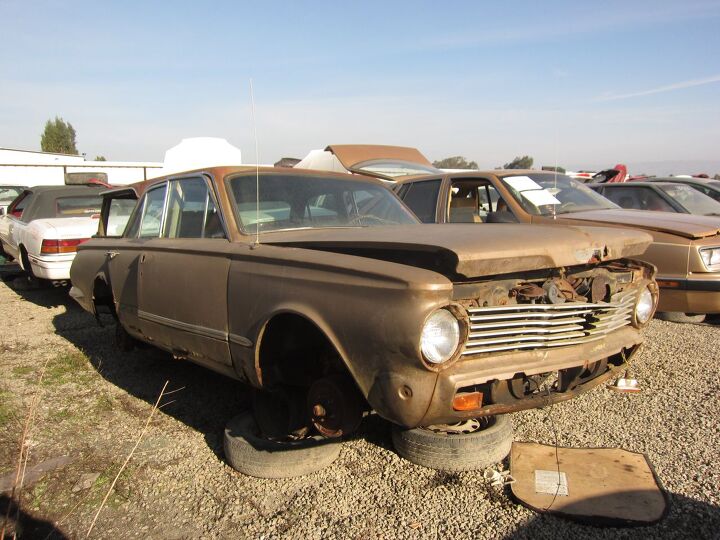



































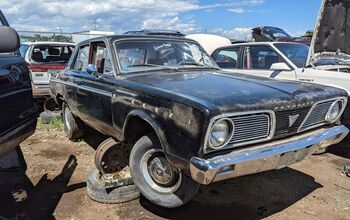
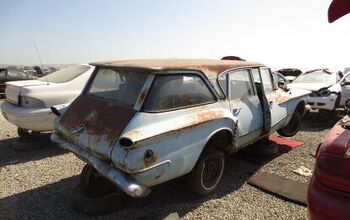
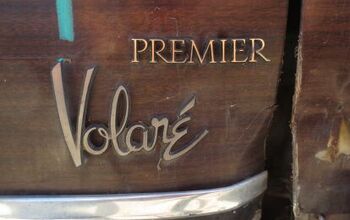
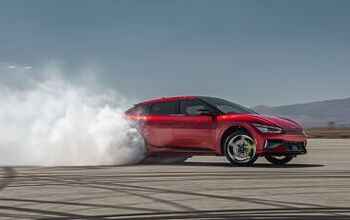











Comments
Join the conversation
I've been accused of being some sort of effete snob who values contrarianism because of my defense of the CTS Wagon I drive. THIS car is proof that that is categorically untrue. Almost this very car (although ours was a '65) was one of the major cars of my childhood. My dad bought it after his time with the company Volvo Amazon wagon ended. We hauled our bicycles to the repair shop in it. There were several pounds of beach sand in it from the two-or-three times weekly trips to Jones Beach or Point Lookout. My butt is still sore from riding in the back on family trips to D.C. We hauled furniture, firewood and newspapers collected for recycling at .55/100 lbs. The love of wagons is deep because of the sheer experience with the basic form, much of it gained from this very car. I don't really care what other people buy and drive except where those choices tend to limit what I want to buy. Wagons are cool. It's not fashion. They are cool because they are really useful.
I just bought one of these from original owner. She wrecked the front end. I wish I knew where this junkyard is?